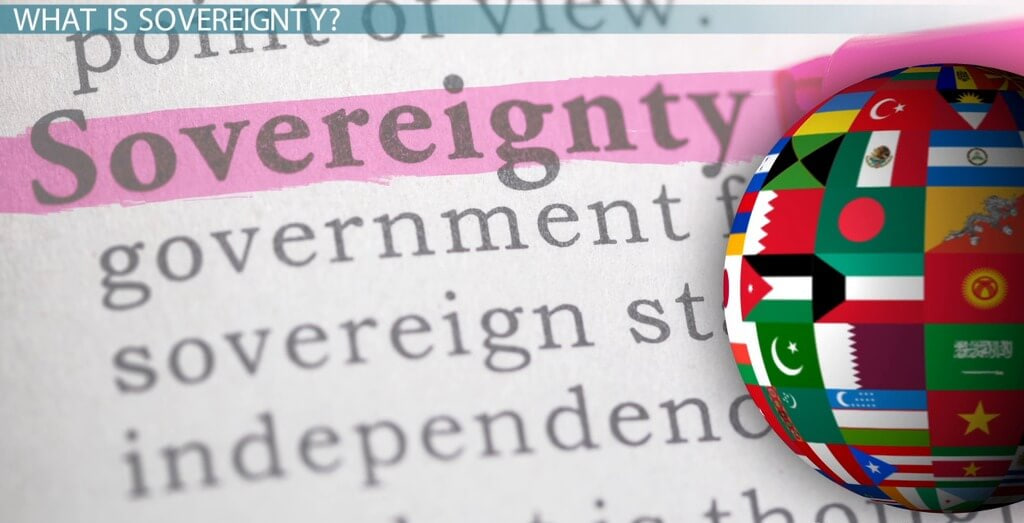Description

Copyright infringement not intended
Context: During the Karnataka state election campaigning, there emerged a controversy over the sovereignty concept under Indian Constitution.
Details
About
- India is a sovereign nation, which means that it has the right to govern itself without any external interference.
- India's sovereignty is derived from its constitution, which was adopted on 26th November 1949 and came into effect on 26th January 1950.
- The constitution declares India as a "sovereign socialist secular democratic republic" and lays down the basic principles of its political system, such as parliamentary democracy, federalism, secularism, fundamental rights and duties, and judicial review.
Indian Constitution asserts the sovereignty of India in several ways
- The Preamble of the Constitution states that "We, the people of India, having solemnly resolved to constitute India into a sovereign, socialist, secular, democratic republic..."
- Article 1 of the Constitution declares that "India, that is Bharat, shall be a Union of States."
- Article 51 of the Constitution states that "The State shall endeavour to promote international peace and security, maintain just and honourable relations between nations, foster respect for international law and treaty obligations in the dealings of organised peoples with one another..."
- The Constitution of India also protects the sovereignty of India by laying down certain duties and obligations for its citizens.
- Article 253 of the Constitution empowers Parliament to make laws for implementing any treaty, agreement or convention with any other country or country or any decision made at any international conference, association or other body.
- Article 368 of the Constitution provides for the amendment of the Constitution by a special majority of Parliament.

India's Sovereignty in its foreign policy
- India's sovereignty is also reflected in its foreign policy, which is based on the principles of non-alignment, peaceful coexistence, mutual respect and cooperation, and respect for international law and norms.
- India has established diplomatic relations with almost all the countries in the world and is an active member of various regional and global organizations, such as the United Nations, the Commonwealth, the Non-Aligned Movement, the South Asian Association for Regional Cooperation, the Association of Southeast Asian Nations, and the Group of Twenty.
India's Sovereignty in its defence and Security Policy
- India's sovereignty is also manifested in its defence and security policy, which aims to protect its territorial integrity and national interests from any external or internal threats.
- India has a strong and professional armed forces, which consist of the army, the navy, and the air force.
- India also has a nuclear deterrence capability, which it declared in 1998 after conducting five nuclear tests.
- India follows a policy of "no first use" of nuclear weapons and maintains a "credible minimum deterrence" posture.
India's Sovereignty in its Economic and Social Development Policy
- India's sovereignty is also demonstrated in its economic and social development, which is guided by its vision and priorities.
- India has achieved remarkable progress in various fields, such as agriculture, industry, science and technology, education, health, and infrastructure.
- India is one of the fastest-growing economies in the world and is expected to become the third-largest economy by 2030.
- India is also a diverse and pluralistic society, which respects and celebrates its cultural, linguistic, religious, and ethnic diversity.
Concerns
- The sovereignty of India is not something that can be taken for granted or compromised. It is something that has to be constantly defended and preserved by every generation of Indians.
- The sovereignty of India can be threatened by various factors such as external aggression or interference, internal unrest or violence, secessionist or separatist movements etc. Therefore, it is important for every Indian to be aware of their rights and duties as citizens of a sovereign country, and to uphold the values and principles enshrined in the Constitution.
- It is also important for every Indian to respect the sovereignty of other countries, and to promote peace and cooperation among nations.

Conclusion
- India's sovereignty is a source of pride and inspiration for its people and a symbol of its identity and dignity in the world. India's sovereignty is also a responsibility and a challenge for its people and its leaders to uphold and safeguard it from any internal or external threats or challenges. India's sovereignty is not only a legal or political concept but also a moral and ethical value that defines its national character and destiny.
|
PRACTICE QUESTION
Q. Sovereignty is the supreme authority of a state to govern itself without any interference from other states or entities. It is a vital aspect of India's national identity and security. However, India faces many threats to its sovereignty, such as cross-border terrorism, separatist movements, cyberattacks, climate change, and geopolitical rivalries. Examine the significance of sovereignty for India, the major challenges it faces, and the possible ways to overcome them.
|
https://indianexpress.com/article/explained/explained-politics/india-constitution-sovereignty-modi-sonia-karnataka-explained-8598418/











